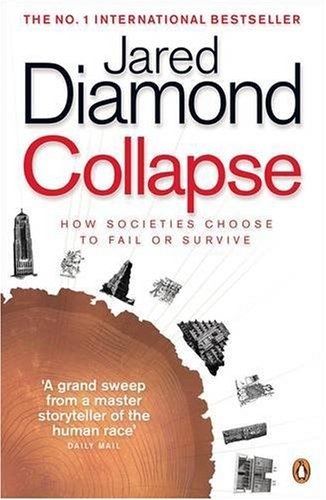










"Collapse" is a wonderful book! Prof. Diamond combines hard science, rigorous historical research, and his own personal knowledge of people from the Bitterroot Valley of Montana to the west coast of Greenland to Rwanda to the highlands of New Guineau. He pulls together clear and compelling explanations of how events unfolded (and are still unfolding) in various parts of the world.
His accounts of various human communities draw on real data from a wide variety of academic fields, including isotope analysis, pollen analysis, tree-ring analysis, seismology, agronomy, archaeology, sociology, and even the history of religion. His explanations of each of these disciplines are lucid without oversimplification. But, the strength of the book comes from the the way he combines results from all these fields to create straightforward narratives of what might have happened as various communities rose and fell.
If I were I high school "social studies" teacher I would be talking to my principal today, saying "I want to put together an honors-level geography course and I want to use this as the textbook."
I do have one criticism. The subject matter of the book is tremendously consequential to people alive today, and hopefully "policy wonks" in governments will study the book and take it seriously. But, the title is a bit inflammatory. What's more, Prof. Diamond makes sure to explain the significance for the United States of his accounts of the demise of various ancient communities. Some of these explanations extrapolate from ancient situations to modern in a way that isn't quite as solid as the rest of the book. Diamond's extrapolations are very cleary marked as such. However, I am still afraid that they, combined with the title, will provide an excuse for people to dismiss the book as a "pro-environment anti-business" ideological polemic. That would be unfortunate, because it is actually balanced and nuanced in its explanation of the human condition.

